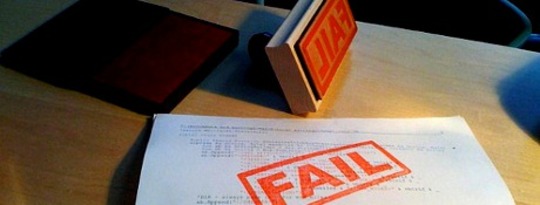
 fter a few days of giving serious consideration to dropping out of medical school, instead I became determined not only to retake Part I of the Boards and pass it, but also to score above the mean, something I'd never been able to do on any test I'd ever taken in medical school. Further, I resolved that no matter how much time I'd need to devote to studying for the test, my performance in the third year wouldn't suffer — rather, it would be stellar.
fter a few days of giving serious consideration to dropping out of medical school, instead I became determined not only to retake Part I of the Boards and pass it, but also to score above the mean, something I'd never been able to do on any test I'd ever taken in medical school. Further, I resolved that no matter how much time I'd need to devote to studying for the test, my performance in the third year wouldn't suffer — rather, it would be stellar.
I didn't just want to survive this obstacle; I wanted to triumph over it. I didn't just want to pass the test and learn the material; I wanted to transform the experience of failing into a genuine benefit, into something I could one day say with conviction I was glad had happened to me.
I had no real idea how this would — or even could — occur. Nevertheless, I chanted to bring forth the wisdom that would enable me to achieve success. And then I took action: I studied every spare moment I had, sometimes staying up late into the night, sometimes arising several hours early in the morning. I studied at every meal. I stopped watching television, reading for pleasure, even socializing with friends. For the entire year, I remained disciplined, focused, and relentless.
One Thing After Another...
Then, ironically, on the day of the test I almost missed the eight o'clock start time (which would have disqualified me from being allowed to take it) due to an accident on the expressway that slowed traffic to a crawl. Our eyes riveted on the clock, my mother and I cheered as my father sped through two red lights to get me to the test center on time.
The test was scheduled to last two days — twelve hours in total. I finished the first day with a sense that I'd performed well. But then came a crushing blow: the next morning, just before the start of the second day, we learned that test security had been compromised by thieves who'd managed to steal copies from a test center in Michigan and that officials were considering invalidating the test results for the entire country.
As I glanced around at the horrified expressions in the room, I felt my will to complete the exam draining away. But rather than close my exam booklet and walk out as I felt the urge to do, instead I resolved to continue as I had all year, in willful ignorance of the odds stacked against me, fighting with all my might to overcome my impulse to give up.
My determination paid off. In the end, test officials decided not to invalidate the results, and I not only passed the exam but also met my goal of scoring above the mean. I went on to graduate medical school and landed a residency at the University of Iowa Hospitals and Clinics.
Knowledge vs. Wisdom
 But the true victory didn't come until years later, sometime after I'd begun working as a primary care physician at the University of Chicago, when a medical student came to see me one day distraught over having failed her third-year clinical rotation in internal medicine. Hoping to encourage her, I decided to divulge the story of my own failure. And as I told her what had happened and watched her expression shift from despondent to contemplative and then from contemplative to resolute, I felt my shame over having failed Part I of the National Boards finally evaporate.
But the true victory didn't come until years later, sometime after I'd begun working as a primary care physician at the University of Chicago, when a medical student came to see me one day distraught over having failed her third-year clinical rotation in internal medicine. Hoping to encourage her, I decided to divulge the story of my own failure. And as I told her what had happened and watched her expression shift from despondent to contemplative and then from contemplative to resolute, I felt my shame over having failed Part I of the National Boards finally evaporate.
Only because I had failed, I realized, was I now in a position to offer someone else who'd failed in a similar way that most critical of psychological nutrients: hope. What's more, in telling my story to someone else for the first time, I realized that having to relearn all the material presented in the first and second years of medical school had made me a better doctor.
It had not only broadened my knowledge base but also sharpened my reasoning skills, leading to an ability, I now saw, to make diagnoses I wouldn't have been able to make otherwise, as well as highlighted for me the importance of focusing not just on the diagnosis and treatment of disease, but also on the alleviation of the emotional suffering that disease often brings. I had indeed transformed the experience of failing the Boards into a benefit — twice.
Living the Truth of the Principles & Wisdom
After the student left my office, I found myself thinking about how quickly we pronounce final judgment on the things that happen to us, deciding whether they're good or bad in the first moment they occur — about how in doing so we surrender our own agency, abandoning the belief that we have the power to meaning out of what happens to us. I'd always believed we did have that power — and had even encouraged others going through their own struggles to believe it — but hadn't known it was true myself until my own failure proved it to me.
Herman Hesse once wrote that wisdom, when spoken aloud, always sounds a little bit foolish. Perhaps that's because when we hear something that makes sense to us, we think we already know it. But often we don't. At least not in a way that matters. We know it with our intellects, but not with our hearts. Not, as we say in Nichiren Buddhism, with our lives. For we can only be said to really understand a principle when we actually live by it.
Copyright 2012 Alex Lickerman. All Rights Reserved.
Reprinted with permission of the publisher,
Health Communications, Inc. ©2012. http://www.hcibooks.com
This article was adapted from the book:
The Undefeated Mind: On the Science of Constructing an Indestructible Self
by Alex Lickerman MD.
 Through stories of patients who have used nine core principles to overcome suffering caused by unemployment, unwanted weight gain, addiction, rejection, chronic pain, retirement, illness, loss, and even death, Dr. Lickerman shows how we too can make these principles function within our own lives, enabling us to develop for ourselves the resilience we need to achieve indestructible happiness. At its core, The Undefeated Mind urges us to stop hoping for easy lives and focus instead on cultivating the inner strength we need to enjoy the difficult lives we all have.
Through stories of patients who have used nine core principles to overcome suffering caused by unemployment, unwanted weight gain, addiction, rejection, chronic pain, retirement, illness, loss, and even death, Dr. Lickerman shows how we too can make these principles function within our own lives, enabling us to develop for ourselves the resilience we need to achieve indestructible happiness. At its core, The Undefeated Mind urges us to stop hoping for easy lives and focus instead on cultivating the inner strength we need to enjoy the difficult lives we all have.
Click here for more info or to order this book on Amazon.
About the Author
 Alex Lickerman, MD, is a physician and former director of primary care at the University of Chicago. He is also a practicing Nichiren Buddhist and leader in the Nichiren Buddhist lay organization, the Soka Gakkai International, USA (SGI-USA). Dr. Lickerman is a prolific writer, having written for medical textbooks, national trade publications, and even for Hollywood with an adaptation of Milton's Paradise Lost. Dr. Lickerman's blog "Happiness in this World" is syndicated on the website of Psychology Today, and receives over one hundred thousand unique visitors per month. Please visit his website at www.alexlickerman.com.
Alex Lickerman, MD, is a physician and former director of primary care at the University of Chicago. He is also a practicing Nichiren Buddhist and leader in the Nichiren Buddhist lay organization, the Soka Gakkai International, USA (SGI-USA). Dr. Lickerman is a prolific writer, having written for medical textbooks, national trade publications, and even for Hollywood with an adaptation of Milton's Paradise Lost. Dr. Lickerman's blog "Happiness in this World" is syndicated on the website of Psychology Today, and receives over one hundred thousand unique visitors per month. Please visit his website at www.alexlickerman.com.



























